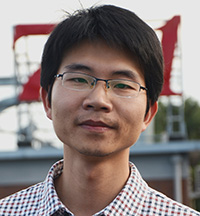President Rodrigo Duterte of the Philippines paid a closely watched visit to Japan recently. The visit offered a lot of food for thought.
Japanese media and government officials used the opportunity to appeal to President Duterte to bring his country back to the fold of the United States and Japan, and peddle Japan’s other requests to serve its own strategic agenda. In a nutshell, Japan sought to persuade the Philippines not to get too close to China, at the expense of its close alliance with the US. Clearly, Japan is ready to make the case for US strategic interests in the region, and to be a messenger between the US and the Philippines.
Evidently, Prime Minister Shinzo Abe wants to kill two birds with one stone. On the one hand, he aims to do a favor for the US, in return for continued support for Japan’s unjustified claims in the region; on the other, Japan seeks to bolster its own standing in Asia, and advance the shared goal with the US to contain China’s influence in the region — especially the prospects of an “Asian NATO” surrounding China. But this will prove a futile attempt, rooted in Japan’s presumptuous calculation of its own power and influence in the region. President Obama’s charm offensive on the Philippines did not work, and it thus begs the question what Prime Minister Abe could pull out of his hat to overturn the situation? Financial incentives may be an obvious option, given Japan’s deep pockets. But recent empirical experiences show that money no longer does the trick.
Prime Minister Abe also may have underestimated President Duterte’s ambitious agenda for the country. President Duterte has said in clear albeit blunt language that he pursues a Philippines first foreign policy, refusing to be any country’s “puppet”, as stated in his response to the Japanese right wing’s disrespectful remarks. The Philippines pursues an independent foreign policy, and in a sense it seeks to maintain a balanced relationship with major powers in the world. Hence, it resorts to peaceful dialogue rather than confrontation with China, and promotes international trade cooperation to advance its own economic growth and its people’s wellbeing. President Duterte has grand aspirations in mind, in contrast with Prime Minister Abe’s parochial agenda. Media in the US and Japan dismissed President Duterte as a “big mouth” and a “loose cannon”, but the fact is that underlying his rhetoric. President Duterte has a clear-cut governance strategy and direction leading to that objective, which marks a departure from President Benigno Aquino III’s policy, and should not even be mentioned in the same breath with Shinzo Abe’s foreign policy agenda.
It may serve Japan better to think twice over the merits of its subordinate relationship with the US. The “Duterte phenomenon” must have prompted much reflection in Washington, and so it should in Tokyo.

